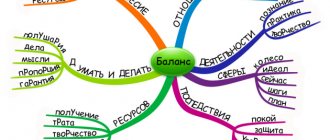We are all adults – we were once little children. And when we grow up, this child that we were in our past continues to live inside us.
And if our childhood was quite painful and difficult, then our inner child needs healing. Even though we have grown up, our wounded inner child continues to make itself felt. And ask us for help.
This article is about the inner child. And in it we will talk about who the inner child is. What types of inner child are within us. Why work with the inner child is needed, and how to do it. And how to love yourself through healing your inner child.
What is important to know about the inner child?
The inner child is a “part” of our personality. Which stores all our memories, feelings, needs, reactions, attitudes towards ourselves and others, patterns of behavior that we have preserved from our childhood.
When we react to some situations in the same way as we did in childhood. Then we react from our inner child.
If in childhood some of our important psychological needs were not satisfied, then our inner child “gets stuck” and cannot further grow and develop.
How to love him
Some parents make their son or daughter feel unworthy. With their criticism and reproaches, they inspire the offspring that he is bad, unworthy of love. Children grow up with this attitude. All children from destructive families do not know how to love themselves, they blame and hate themselves for being bad. Without self-acceptance and love there can be no healing. How to love your inner child?
Loving yourself means hearing and satisfying your needs and desires, taking care of yourself, appreciating and respecting yourself. How often do you take time for yourself, how often do you thank yourself and compliment yourself? Or do you more often sacrifice yourself for the sake of others and scold yourself for every little thing? What strengths do you have? Or are you sure that you consist only of shortcomings?
Right now, make a list of your strengths, organize an honest conversation with yourself. And at the same time, make a list of your true desires. Give yourself compliments every day, thank yourself and cross out one wish at a time (the deadline depends on the scale of the task - it can take a day or a month). Apply this attitude to everything, whether it's choosing what to eat for breakfast or choosing where to work. To love your inner child, you need to understand yourself. Communication will help with this.
Important! Every child wants to know that they are loved. Every person, regardless of the state of his inner child, needs to hear kind words, feel support and care from other people, and receive attention. But it’s even more important to give all this to yourself.
Types of inner child
Our inner child can be different. We can say that there are different parts of children in us, in our psyche. For example, we have:
- An adaptive child is a child who adapts to his parents, obeys their rules, and tries to meet their expectations. Also, an adaptive child can manifest itself in us as a rebellious child, when we, on the contrary, try to rebel against these rules, do the opposite.
- And a free child is a child who behaves the way he wants. Regardless of parental rules and expectations. He does not try to obey or rebel against his parents' demands. And you behave freely and naturally.
We can also have children of different ages inside us:
- An unborn child - which retains the memory of our intrauterine development.
- Inner baby.
- Young child (1-3 years).
- The child is a preschooler (4-6 years old).
- Child 7-10 years old.
- Inner teenager.
There may also be inner children within us:
- A happy child is a child whose needs are met. Which is allowed to manifest itself and develop naturally. Who is loved and supported.
- A traumatized, wounded inner child is a child who was born and formed as a result of the fact that our needs for love, acceptance or security were not met.
- A playful child is a child who loves to have fun, play, and act naturally and spontaneously. He loves to learn new things and is delighted with different adventures.
- Magical – very creative. Likes to fantasize and come up with something new and interesting. He is a dreamer.
- A feeling child is a child who experiences feelings and knows how to empathize with others. It is responsible for our capacity for affection and love.
- Angry - vindictive and vindictive. Tends to punish other people and get angry with them. He is responsible for our ability to defend ourselves.
- A forgotten inner child is a child with whom contact has been lost, who has been forgotten. A forgotten inner child can lead us as adults to crises, depression, and a feeling of meaninglessness and uselessness of our own lives.
Definition of the concept
What is an inner child in psychology, what does it mean? The inner child is a collective image that includes children’s psychological beliefs and a person’s ideas about the world and himself.
Parents help their child understand the following:
- what he is like and what awaits him;
- how it is accepted and how it is not accepted;
- what he is capable of and what he is incapable of.
Some people are luckier: parents give enough love and take a reasonable position in matters of upbringing. But some are less fortunate: parents instill in the child the idea of his worthlessness, insolvency, “badness,” and uselessness. The former develop the attitude “I am good, and the world is safe”; the latter, “I am bad, the world is dangerous.” The first ones know how to trust people, value and love themselves. The latter do not accept themselves and do not trust other people.
A child lives inside every person. He is responsible for our “wants”, openness and spontaneity, sincerity, emotionality. Remember how children behave. They are free from social masks. Children know how to be happy just like that, and express their thoughts directly. They put their desires at the head of the table. They are free to express themselves.
Gradually, under the influence of upbringing, the child gets used to following social norms, limiting his desires, and suppressing emotions. Being an adult is boring. For all the moments of joy and fun, you can thank the child within you. However, sometimes, due to trauma and a difficult childhood, a person grows up depressed and sad. He does not know how to rejoice, express his emotions, love, or be open.
What traumatizes a child?
Imagine the stress a child experiences at the moment of birth, the horror that engulfs him. For nine months he lived in ideal conditions, complete safety and comfort. And suddenly he finds himself in some new world, where hundreds of irritants fall upon him. All he needs is to regain a sense of security again. The mother’s task is to help the baby feel safe, to form the attitude “Mom is fine, everything is fine with me, everything is fine in the world.” Problems with safety (physical, mental, emotional) lead to traumatization.
For example, the following (parental mistakes) are traumatic:
- coldness and distance from parents and other significant adults;
- systematic violation of personal boundaries (physical and emotional violence);
- systematic punishment and suppression, prohibition on the expression of opinions and emotions;
- irrational criticism and insults, especially in public;
- transferring responsibility to the child, taking out your pain on him (“Because of you, I did not become a successful doctor,” “Because of you, my husband left me,” “Shame on you, you shame me all the time”).
Thus, physical, psychological and emotional injuries lead to traumatization. Over the years, some of the shocks go to the subconscious level and are, as it were, forgotten, but still continue to influence a person. The inner child remains traumatized. Moreover, an adult can be sure that there was nothing bad in his childhood. However, some signs may suggest traumatization.
The Wounded Inner Child and Relationship Trauma
The traumatized, wounded inner child is a part of us that carries the imprint of our psychological traumas.
Trauma is our psychological wound. This is our reaction to some event or to many similar events that our psyche could not cope with. And as a result, it was divided into a traumatized part (i.e., our wounded inner child) and a part of the protector, the persecutor.
Such a traumatic event could be:
- something extreme. For example, an attack, a fire, a war, someone’s murder, a natural disaster, etc. Then we develop a shock trauma.
- as well as many unpleasant, “softer” events, but recurring regularly. For example, psychological violence, violation of agreements on the part of the parent, lack of attention, rejection, non-acceptance of certain qualities, etc. As a result of such events, we develop developmental trauma or, in other words, relationship trauma.
Our traumatized inner child encourages us to experience again and again similar painful events that caused us to be traumatized. To finally do something differently about this event and heal. And another part of us, our inner defender, seeks to avoid such an event. Protect us from recurrence of trauma.
This inner protector, which protects us from repeating relationship trauma, can manifest itself through fear of intimacy. When we are afraid to let another person close to us or are afraid to enter into a relationship at all. Our fear of close relationships is formed precisely as a result of relationship trauma.
The healing of the inner child occurs through the healing of its “wounded part.” That is, through working with relationship trauma. And as a result of his healing, our ability to have close, trusting, loving relationships with other people increases.
Main causes of injury
As we have already found out, a child becomes unhappy when he does not gain confidence in the world and in people. Let's look at the main reasons that make a child feel unhappy:
- A withdrawn parent who does not express love for their child.
- Punishments using force. Example: shaking a child, washing the mouth with soap, scratching, spanking, etc.
- Sexual corruption. Showing pornography and adult sexuality.
- Participation in parents' divorce.
- Burdensome activities that are not comparable to age (constant care for one’s parents).
- Lack of confidence in food and place to live.
- Spending a long time alone;
- Emotional neglect (lack of support and encouragement);
- Moral insults, bullying.
- Damaging a child's favorite things.
- Excessive demands on the child.
- Death of loved ones.
- Humiliation.
- Natural disasters, catastrophes.
All this makes the child feel constrained, insecure, and develops a sense of danger for his life. Here he formed the thought “I am nobody, the world is danger.”
The happiness of the inner child can be achieved at a conscious age, using psychological tricks and calming one’s personality.
How does the inner child manifest itself in a relationship?
Often our inner child in relationships manifests itself through some very strong emotional reactions. For example, when we become very scared. Or very sad and painful.
It can also manifest itself in us through the patterns of behavior that we used in childhood in relationships with our parents.
For example, a woman makes serious mistakes at work over and over again. Because of which her boss constantly scolds her. As a little girl, this woman behaved the same way with her mother. Who only paid attention to her when she did something wrong. And in order to receive at least negative attention from her mother, the girl deliberately made mistakes.
And having already matured, this woman unknowingly continues to receive attention from her boss (who even looks like her mother). Because she scolds her for her mistakes.
All that shortage of what we were “lacked” in childhood. We retain all this emotional “hunger” in ourselves into adulthood. And we unconsciously look for people with whom we can “play out this drama”, repeat this painful scenario. A scenario where we need something from another person, but he cannot or does not want to give it to us. Or he gives, but you have to “pay for it” very dearly.
Why look for your inner child?
Diana Raab
Doctor of Psychology, in a comment to Healthline
Each of us has an inner child Finding and Getting to Know Your Inner Child. Communication with him can make your life more prosperous and bring ease into it.
When the inner child is “healthy,” it usually does not cause trouble in adulthood. But if he is “wounded” 3 Therapies to Heal Your Wounded Inner Child, the person may repeat the wrong behavior patterns taught in childhood. For example, a little girl who saw her mother suffer violence from her father may herself become involved with an abuser as an adult.
Communication with the inner child allows you to find the roots of current problems in childhood and get rid of them. Some people end up with the following in the process: What is the “Inner Child”? :
- release repressed emotions;
- recognize unmet needs;
- change incorrect behavior patterns;
- loosen up;
- increase self-esteem.
Why do you need to work with your inner child?
First, working with your inner child is important to make it easier to build loving relationships.
People who have a severely traumatized inner child most often use one of two strategies for dealing with it:
- They can “hide” their inner child from themselves, i.e. “suppress” it within yourself, not allowing it to show up or manifest itself. Or “hide” only from other people, not allowing others to see themselves as such - vulnerable, needy, sensitive and loving. If we do not allow our inner child to express itself in relationships with other people, then it is difficult for us to become attached and close to another person. We become unavailable to other people, emotionally closed.
- Or people may, on the contrary, unconsciously shift all the care of their “inner child” to other people in the relationship. At the same time, without even checking how safe and reliable the other person is to come so close to them. With such a strategy, firstly, there is a very high risk of “getting hurt”, being seriously injured in a relationship. Become attached to a person with whom it is unsafe to be in a relationship. And secondly, it can be difficult for other people to take care of us all the time. Moreover, without receiving anything in return. After all, adult relationships are based on equal exchange. And when there is no balance between “taking” and “giving,” then the relationship between two adults turns into a “parent-child” scenario, becoming unhealthy. Either the person gets tired of taking care of us all the time and moves away or breaks up with us.
Both of these strategies interfere with creating a happy relationship. And to replace these strategies, you need to work with your inner child, heal it and learn to give it love, security, care and attention.
Good contact with the inner child helps us to rely on ourselves, to be more self-sufficient, and not to become heavily dependent on other people. Helps you recognize your desires and act in accordance with them.
It also helps us to be creative. Difficulties with creativity in a person arise precisely because a person suppresses his inner child and does not allow him to manifest himself.
How to work with your ego state?
There are not so many methods for working independently with the child within yourself. In addition to simulating conversations, psychologists recommend:
- writing letters to the child and replies to them on his behalf;
- meditation;
- awareness of one’s true needs and interests, their embodiment;
- destruction of psychological barriers.
All these methods are suitable for people who are thinking about how to grow up their inner child. Fixation of the ego state at a certain age occurs not so much because something extraordinary happened at that moment in the past, but because the person has locked away the memory of it.
Those who have experienced happy moments try to stay in them forever. Those who have received emotional trauma are terrified of its repetition, so they do not let go of their experiences and record them in order to recognize approaching troubles in time.
Loving yourself means loving your inner child.
If you feel that you don't love yourself or don't love yourself enough, then you need to work with your attitude towards your inner child.
Most likely, you don’t love yourself because you have adopted someone else’s negative attitude towards yourself. Someone significant to you as a child treated you in a way that made you feel like they didn't love you. And in childhood, we put the external inside ourselves, absorbing it like a sponge. And you also absorbed someone’s unloving attitude towards yourself, and learned to treat yourself in the same way.
And now, as an adult, you continue to treat yourself the same way, i.e. to your inner child.
Signs of Injury - How to Identify
Many people do not even think about the fact that they live with childhood traumas, so I will give characteristics of people with a suppressed inner child.
- Such people have low self-esteem.
- These people are deprived of self-respect and do not have a sense of “self-worth.”
- They do not know how to take care of themselves.
- They feel insecure in everything (this is often expressed in their gait).
- They have numerous fears and phobias.
- They are indifferent to their health and appearance.
- Such people have formed the habit of being a victim.
- Not only do they not love themselves, but they also do not trust themselves.
- They have problems building close, trusting relationships.
- They do not know how to properly build personal boundaries (either they are audibly narrow or too wide), and they also do not know how to protect their personal space.
- Owners of numerous internal conflicts.
- There is a feeling of being lost; such people do not know who to be and what to want.
- Also, these people often transfer problems to others or, on the contrary, have the habit of saving everyone, thereby pointing out their complexes on others.
- Such people are very prone to various addictions, as well as dependent, unhealthy relationships.
People with inner child injuries often feel unhappy because they do not have good personal and social relationships. They do not have the strength and motivation to take actions that lead them to success.
Develop a loving inner parent
Healing of the inner child occurs through a loving attitude towards him. To learn to treat him with love, it is important to develop a loving and caring inner parent. In return for that critical, non-accepting, rejecting parent who is now inside you.
This process is not quick. You can't just do something today and wake up tomorrow with a loving inner parent. Long-term regular work is required for this. But if you really carry it out, then you won’t even notice how you will become more stable and filled with love.
Working with the inner child. Exercises
First exercise To begin, do this work with your unborn inner child. To heal the traumas you suffered during the prenatal period.
- Imagine yourself as an adult, as a mother to your inner child. And that within you is your unborn inner child. It is important to imagine not your real mother, but yourself, as a mother to your inner child. Feel your warmth, love and tenderness for this child who is inside you. Stay with these feelings for a while.
- Then feel yourself as this unborn child. And feel love and tenderness for your mother with your whole body. Feel that you love your mother (not your real mother, but yourself, as your own mother), and your mother loves you. Feed yourself on these feelings.
- As you observe this communication between mother and inner child, periodically change your role. Either feel like a mother or a child. And feed off the love they feel for each other.
Repeat this exercise every day for a month. And then take the next age period - infancy. Repeat this exercise with your inner baby. And do it every day for a month. And then repeat everything with your inner child of early childhood, preschool age, elementary school age and your inner teenager.
Second exercise
In order for your inner child to feel his worth and feel worthy and good, it is important to praise him. And do it regularly.
For this you can keep a notebook. In which, every day, write down 5-15 points for which you praise your inner child today. It is important to repeat this exercise every day for at least a month. It is important to do this regularly and not miss days, so that you learn to praise yourself automatically, so that you develop such a skill.
Healing the inner child
- If you have never worked with your inner child before, then first you need to get to know him. To do this, you can write him a letter. Or imagine that he is sitting in front of you. And looking into his eyes or in a letter, greet him and tell him everything you want to say.
- Find out from your inner child what he needs, what he wants. And find a way to give it to him. It is important that this is not a one-time job, but constant and regular.
- Analyze your relationships with people and determine which needs you most often cannot satisfy in your relationships. But you want it. Maybe it's the need for a stable and secure relationship. Or the need for recognition and praise. Or the need for warm touches and hugs. Or the need for freedom. Or the need for attention.
To change your relationships, make them happier and more nourishing, it is important to learn how to give this to yourself, to satisfy these needs for yourself. It is important to learn to notice and find people who are able, willing and able to give you what you need. Learn to talk to others about your needs and ask for them. Learn to satisfy these needs from other people yourself. And also learn to build such relationships with them that other people want to do something nice for you.
- Sometimes organize holidays for your inner child. When you do something for him all day long, pamper him and make him happy. For example, buy yourself balloons, treat yourself to cotton candy, sing yourself a lullaby, ride yourself on a carousel or swing. Give him a doll or a car, play with him and other children, watch your favorite cartoon. Take yourself to a water park, circus or dolphinarium, do something creative. Embrace yourself or the image of your inner child in your imagination. If as a child you dreamed of something, and on this day you can make this dream come true.
- Watch the feature film “Big Little Me” and do similar work with your inner child, as the heroine of the film did.
It is better to work with the inner child (and especially with its “wounded part”) together with a psychologist. If you want to learn to be more loving with yourself. And become more self-sufficient, happier and more stable in relationships through working with your inner child. Then contact me for personal consultations.











